-
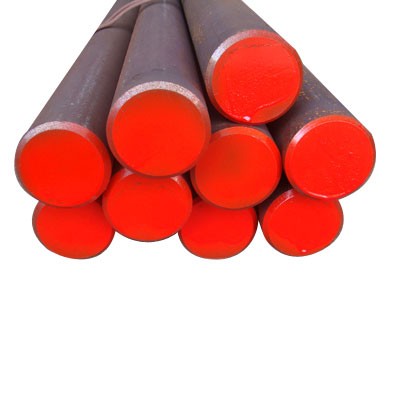
Alloy Steel
Adding one or more metal or non-metal elements to the base of ordinary carbon steel to change the mechanical and physical properties of carbon steel. Commonly added elements such as nickel, chromium, molybdenum, zirconium, vanadium, cobalt, aluminum Mn, tungsten, titanium, tantalum, etc., depending on the added elements, and appropriate processing, can obtain high strength, high toughness, wear resistance, corrosion resistance, low temperature resistance, high temperature resistance, non-magnetic and other special properties. After adding the element of alloy steel, the new steel is given the following main characteristics: 1. Strengthen the mechanical properties of steel, such as strength, hardness, impact value, toughness, elasticity, hardening energy and so on. 2. Extend the life of steel. 3. Increase the corrosion resistance and rust resistance of the steel to keep the surface of the steel bright and beautiful. There are many kinds of alloy steels, usually divided into low alloy steel, medium alloy steel and high alloy steel according to the content of alloying elements; high quality alloy steel and special alloy steel according to quality; alloy steel, stainless steel, acid-resistant steel, wear-resistant steel, heat-resistant steel, alloy tool steel, rolling bearing steel, alloy spring steel according to characteristics and application. According to special properties are divided into soft magnetic steel, permanent magnet steel, non-magnetic steel etc. The most popular alloy steel is stainless steel with a chromium content of at least 10.5%. This ratio gives stainless steel better corrosion resistance and a layer of chrome oxide can slow rust. Generally, if the carbon content is reduced to 1% or 3%, the alloy metal can achieve higher formability and weldability, thereby increasing strength. The main advantage of the alloy steel is for construction that it is easy to quench and improve the mechanical properties after tempering. It is used to manufacture important parts of various machinery. It is excellent in various mechanical properties such as tensile strength, elastic limit, elongation, impact value and fatigue limit. At the same time, it has good and various processing properties such as castability, forgeability and machinability. It is mostly used in the manufacture of shafts, gears, strong screws, nuts, automotive, locomotive parts, mechanical parts, and surface hardening of various important mechanically parts.
-
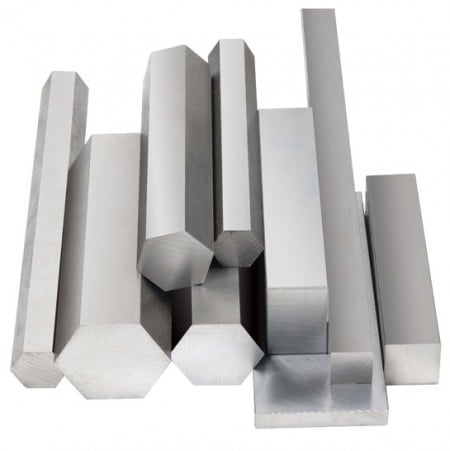
Special Shaped Steel
In order to meet the demands of different markets and different applications, Ju Feng (JFS) offers customers a wide variety of custom special shaped steel bars, such as cold drawn round steel bar, hexagonal steel bar, square steel bar, flat steel bar, other irregular shaped steel bar, etc.
-
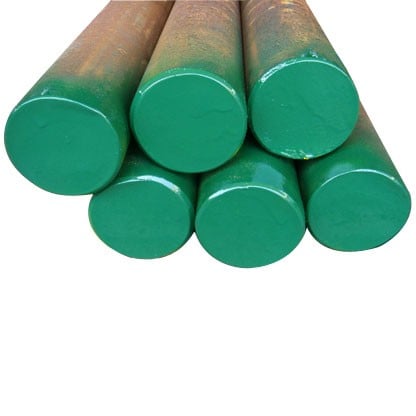
SCM415
Alloy Steel
Equivalent Grades: GB 15CrMo, JIS SCM415, DIN 15CrMo5. SCM415 whose surface are processed through carburizing hardening treatment are used for the parts which need high toughness or wear resistance, such as cylinder piston, crankshaft, gears, pin, shafts and so on.
-
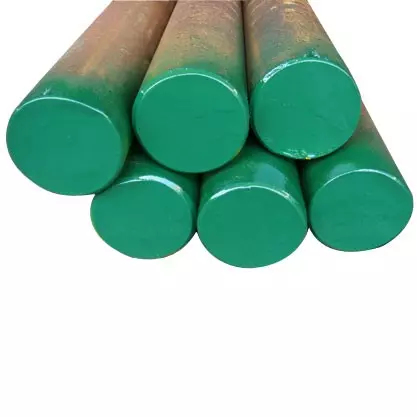
SCM420
Alloy Steel
Equivalent Grades: GB 20CrMo, JIS SCM420, ASTM 4118, DIN 25CrMo4. SCM420 are alloy steel with high hardenability, temper brittleness, well weldability, less cold cracking tendency, good machinability, and great cold plastic strain. SCM420 generally are used for the parts which need high wear resistance, such as gears, shafts, high-pressure pipes, all kinds of fasteners, and so on.
-
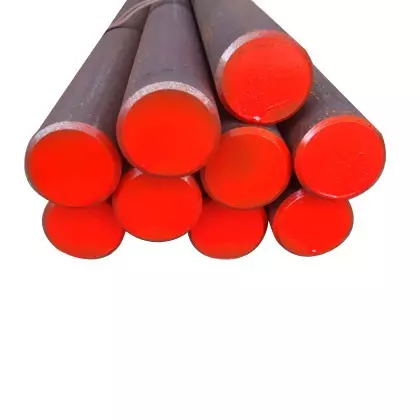
SCM440
Alloy Steel
SCM440 is medium carbon chromium molybdenum alloy steel, which is an alloy steel containing chromium and molybdenum. It has the advantages of stable composition, low harmful elements, high steel purity, small decarburization layer and few surface defects. It is easy to be spheroidized and has low cold cracking rate. It is usually hardened and tempered. The ultimate tensile strength is 850-1000 Mpa. This material achieves a very good balance between strength, toughness and wear resistance. The chromium content of the alloy provides good hardness permeability, and the molybdenum element imparts average hardness and high strength. SCM440 reacts well in heat treatment and it is easy to process under heat treatment conditions. This material provides many desirable properties such as good strength and wear resistance, excellent toughness, good ductility and resistance to high-temperature stresses.
-
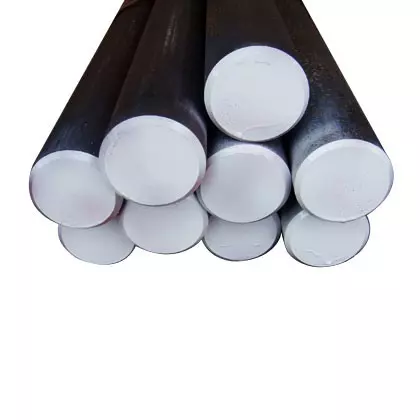
SNCM220
Alloy Steel
Equivalent Grades: GB 20CrNiMo, JIS SNCM220, ASTM 8615, 8617, 8620, 8622, DIN 20MoCr4. SNCM220 is mainly used for automobile bearings, drive shafts, gears, screws, cutting tools and other products which need impact resistance and wear resistant. SNCM220 is a common type of alloy carburizing steel or bearing steel with the surface of high hardness, abrasion resistance and contact fatigue strength. Its core which has high toughness can withstand high impaction.
-
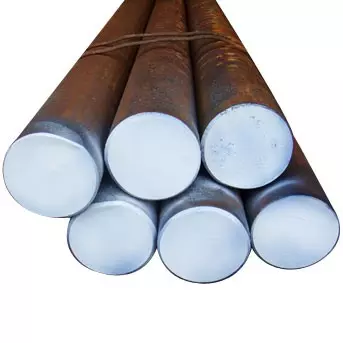
SNCM420
Alloy Steel
Equivalent Grades: JIS SNCM420 and ASTM 4320. SNCM420 is mainly used for railway bearings, drive shafts, gears, screws, cutting tools and other products which need impact resistance and wear resistance. SNCM420 is a kind of alloy carburizing steel as SNCM220. The mechanical properties between SNCM420 and SNCM220 are almost the same. The surface of SNCM420 is high hardness and has good performance in abrasion resistance and contact fatigue strength. Its core which has high toughness can withstand high impaction. There are two differences between SNCM420 and SNCM220 which are the standard and the amount of Ni content. The Ni content of SNCM420 is more than the one of SNCM220.
-
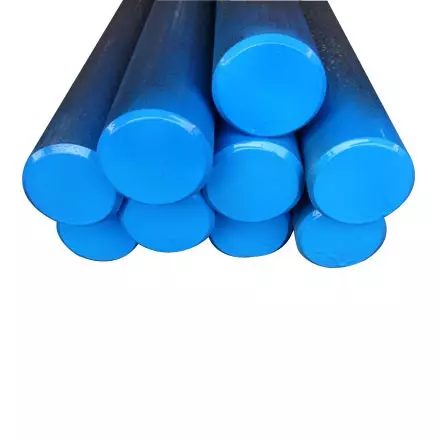
SNCM439
Alloy Steel
Equivalent Grades: GB 40CrNiMoA, 45CrNiMoVA, JIS SNCM439, and ASTM 4340, 9840. SNCM439 is a kind of refining steel and has the properties of high hardness and toughness. It is often used for the manufacture of screws, gears, shafts, nuts, pistons, the automobile parts required high toughness and so on.
-
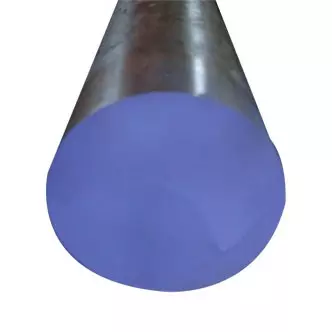
SKD11
Tool Steel
Equivalent Grades: GB Cr12MoV, JIS SKD11, AISI/SAE D3, DIN 2X165CrMoV12. SKD11 is the tool steel, die steel, and high carbon steel possessing high hardness, strength and wear resistance. Its surface is grinded precisely. It is often used for the stamping dies, plastic molds, and so on.
